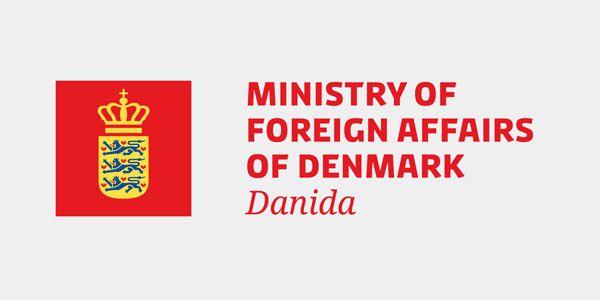Just months ago, the days of Mohammad Al-Hammoud and most residents in Shlash informal settlement started and ended with a single, urgent question: Where will we get water today?
For eight years, 187 families (1068 individuals) majority residing in tents, mud houses and others in both, have lived in Shlash Informal Settlement (IS) in the countryside of Ar-Raqqa Governorate. The majority are displaced from Deir-ez-Zor Governorate.

Mohammad, a 30-year-old male works in agriculture and is a member of one of the groups established by DanChurchAid (DCA) in Shlash. Originally from Deir-ez-Zor, he fled the conflict in 2017 and found himself in Shlash in Ar-Raqqa. Life as an internally displaced person in the settlement hasn’t been easy. There are many problems like water scarcity, bad roads, no jobs… but water was the biggest one.
The only available water came from old irrigation canals that was meant for farmland, not homes. They had no choice but to use that water for everything; washing, cleaning,
The water would sit in the canals for weeks. It was dirty, animals drank from it and caused skin problems for children. Sometimes, it was so hot even the animals wouldn’t drink it.Mohammad
When DCA came to Shlash, they didn’t immediately arrive with solutions; they arrived with questions. The DCA team sat with the community members and explained the project that aimed to support local community members address challenges they face and create solutions with the support from Group Cash Transfer (GCT).
They asked those in the community that were interested to be part of this to sign up; which a number of them did. They were trained on how to identify problems, analyse them, set solutions and propose the final solution by collaborating with the community as a group, in addition to finance, logistics, code of conduct and monitoring and evaluation trainings.
Mohammad joined a community group that chose to tackle the water issue head-on.
Water affects 70% of our problems, Without water, nothing works; crops, animals, our homes, our health.Mohammad
The solution: digging wells that offer a source of water. Not just one or two, but four, carefully placed to serve the affected parts of the settlement. The group ensured the wells were far from the roads so trucks wouldn’t damage them, and far from where children play, for safety. They spread them out so more families could access water.
Mohammad and the other members of the group helped lead the process from start to finish. they rented digging machines and brought in technicians to install everything. their group had a team monitoring the work to make sure it followed what was agreed on in their proposal.

Now, the change is visible everywhere. Before, the plants dried up by this time of year
Mohammad says, looking out over a greener landscape.
But now they’re growing. The scene is different. It’s greener. People are cleaner, happier. You can feel the difference in their mood, less worry, less stress.Mohammad

Land being irrigated and green areas starting to grow again in Shlash in May 2025.
The wells run on solar power, and every well is cared for by a nearby group. They clean the panels, turn the water on and off, maintain everything.
What started as a challenge became something much more.
“We called our community group ‘Proud of the Achievement’ when we started. Now, it really feels like we achieved something. We learned that nothing is impossible and There’s a solution to every issue if we work together.Mohammad
The impact goes beyond water. They also saw how important women’s contributions are. Before, women only worked in the house. But their ideas brought new perspectives. They all see that now.
From thirst to abundance, from frustration to pride, Shlash informal settlemtn is no longer just surviving. It’s growing.
About the project
Full title: Enhancing the protection, resilience and dignity of communities affected by conflict in Northeast Syria (NES)
Period: September 2024 to June 2025
Partner: Amal Organization for Relief and Development and RMCO Organization
Amount: 5,000,000 DKK
Number of people reached by end of project: 14,000+
Donor: DANIDA


